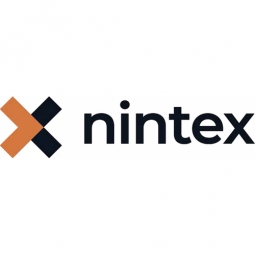Technology Category
- Sensors - Utility Meters
Applicable Industries
- Equipment & Machinery
Use Cases
- Inventory Management
- Time Sensitive Networking
Services
- System Integration
- Training
About The Customer
Genesis Energy is a state-owned generator and retailer of electricity, gas, and LPG in New Zealand. It serves both commercial and residential customers, making it the largest energy retailer in the country. The company has a customer base of 670,000 and employs more than 1,000 people. Genesis Energy operates across multiple geographical sites, which previously led to wide variations in its processes. The company is committed to continuous improvement and has adopted Lean and Six Sigma business methodologies.
The Challenge
Genesis Energy, a state-owned generator and retailer of electricity, gas, and LPG in New Zealand, faced a significant challenge when it decided to bring its externally contracted contact center in-house. The company was at risk of losing valuable corporate knowledge during this transition. Additionally, Genesis Energy was grappling with the complexity of its processes, which often included a mix of low and high-level steps with no clear divide. The company also had to deal with wide variations in processes across its multiple geographical sites, leading to inconsistencies and inefficiencies. The challenge was to capture and retain the corporate knowledge, simplify and standardize the processes, and eliminate regional variations.
The Solution
Genesis Energy turned to Nintex Promapp, a process management software, to address these challenges. The implementation of Nintex Promapp was relatively simple, with the training and support team guiding the project group through the necessary steps. The software was initially used to capture the knowledge from the contact center and was later rolled out into the trading and wholesale operations, health and safety, and the IT department. Nintex Promapp's compatibility with Lean and Six Sigma business methodologies was a significant advantage. The software allowed Genesis Energy to simplify its processes down to seven or eight steps, providing a clear divide between different levels. It also helped eliminate regional variations by providing a single source for all offices to answer their queries and find out how to do things. Furthermore, Nintex Promapp's flexibility allowed it to be tailored to document any process scenario, demonstrating its applicability across different business areas.
Operational Impact
Quantitative Benefit

Case Study missing?
Start adding your own!
Register with your work email and create a new case study profile for your business.
Related Case Studies.

Case Study
Smart Water Filtration Systems
Before working with Ayla Networks, Ozner was already using cloud connectivity to identify and solve water-filtration system malfunctions as well as to monitor filter cartridges for replacements.But, in June 2015, Ozner executives talked with Ayla about how the company might further improve its water systems with IoT technology. They liked what they heard from Ayla, but the executives needed to be sure that Ayla’s Agile IoT Platform provided the security and reliability Ozner required.

Case Study
IoT enabled Fleet Management with MindSphere
In view of growing competition, Gämmerler had a strong need to remain competitive via process optimization, reliability and gentle handling of printed products, even at highest press speeds. In addition, a digitalization initiative also included developing a key differentiation via data-driven services offers.

Case Study
Predictive Maintenance for Industrial Chillers
For global leaders in the industrial chiller manufacturing, reliability of the entire production process is of the utmost importance. Chillers are refrigeration systems that produce ice water to provide cooling for a process or industrial application. One of those leaders sought a way to respond to asset performance issues, even before they occur. The intelligence to guarantee maximum reliability of cooling devices is embedded (pre-alarming). A pre-alarming phase means that the cooling device still works, but symptoms may appear, telling manufacturers that a failure is likely to occur in the near future. Chillers who are not internet connected at that moment, provide little insight in this pre-alarming phase.

Case Study
Premium Appliance Producer Innovates with Internet of Everything
Sub-Zero faced the largest product launch in the company’s history:It wanted to launch 60 new products as scheduled while simultaneously opening a new “greenfield” production facility, yet still adhering to stringent quality requirements and manage issues from new supply-chain partners. A the same time, it wanted to increase staff productivity time and collaboration while reducing travel and costs.

Case Study
Integration of PLC with IoT for Bosch Rexroth
The application arises from the need to monitor and anticipate the problems of one or more machines managed by a PLC. These problems, often resulting from the accumulation over time of small discrepancies, require, when they occur, ex post technical operations maintenance.

Case Study
Robot Saves Money and Time for US Custom Molding Company
Injection Technology (Itech) is a custom molder for a variety of clients that require precision plastic parts for such products as electric meter covers, dental appliance cases and spools. With 95 employees operating 23 molding machines in a 30,000 square foot plant, Itech wanted to reduce man hours and increase efficiency.



